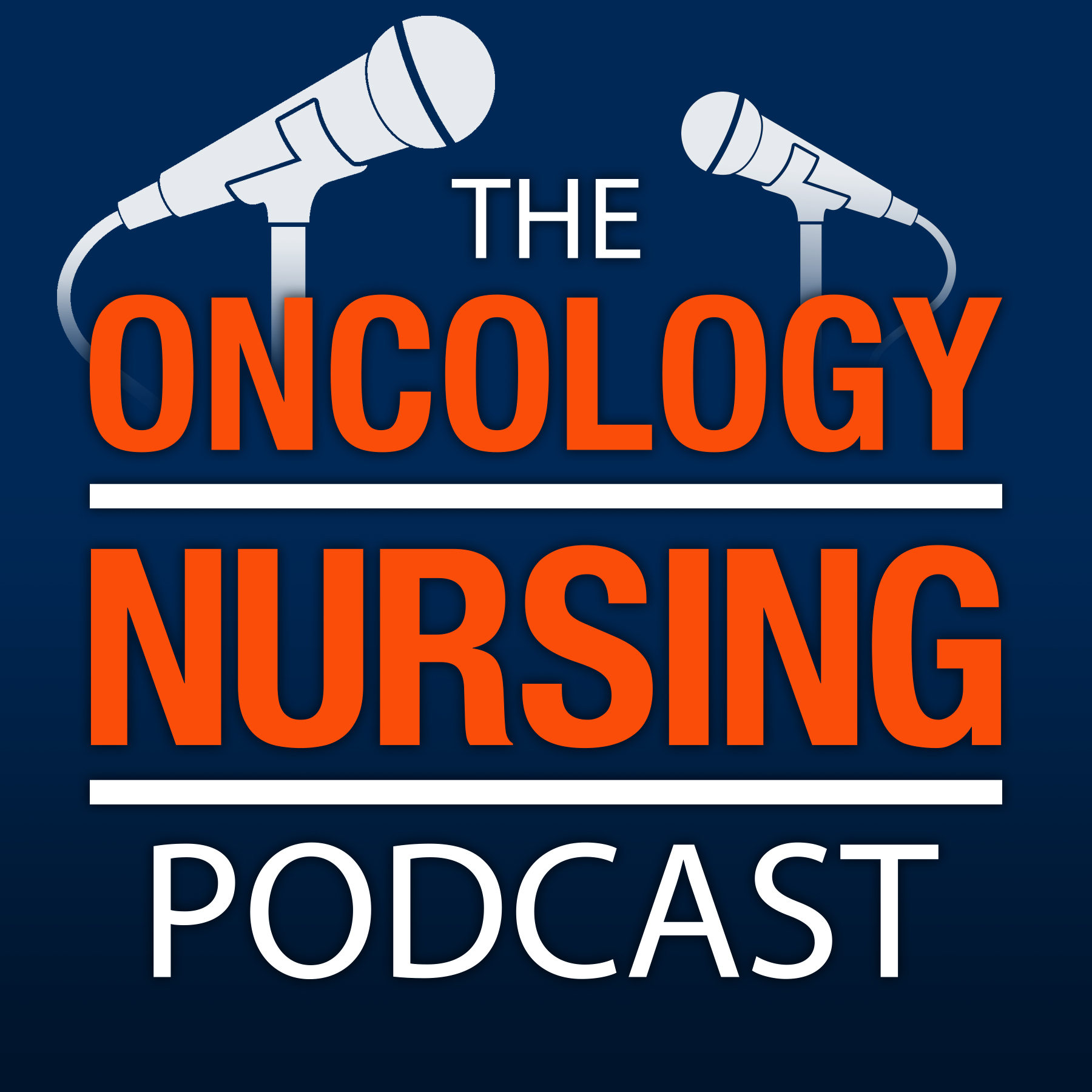
Episode 227: Biomarker Testing, PARP Inhibitors, and Oral Adherence During Ovarian Cancer Maintenance Therapy

The Oncology Nursing Podcast
Shownotes Transcript
“We found that nurses still needed clarity of terminology and the rationale for germline, somatic, and homologous recombination deficiency testing,” ONS member Paula Anastasia, MN, RN, AOCN®, clinical nurse specialist for UCLA Health in Los Angeles, CA, told Jaime Weimer, MSN, RN, AGCNS-BC, AOCNS®, oncology clinical specialist at ONS. Anastasia discussed the findings of a July 2022 ONS focus group that she facilitated on PARP inhibitor therapy, biomarker testing and terminology, and oral medication adherence for patients with ovarian cancer. This podcast episode is supported by a sponsorship from AstraZeneca. ONS is solely responsible for the criteria, objectives, content, quality, and scientific integrity of its programs and publications.
Music Credit: "Fireflies and Stardust)" by Kevin MacLeod
Licensed under Creative Commons by Attribution 3.0
Episode Notes
NCPD contact hours are not available for this episode.
Clinical Update: PARP Inhibitors)
Survey: 2022 Member Feedback on Ovarian Cancer Treatment Focus Group Outcomes)
ONS Genomics and Precision Oncology Learning Library)
ONS Guidelines™ to Support Patient Adherence to Oral Anticancer Medications)
Oncology Nursing Podcast episodes:
Episode 215: Navigate Updates in Oral Adherence to Cancer Therapies)
ONS Voice articles:
Oncology Nurses’ Role in Translating Biomarker Testing Results)
Maintain Oral Adherence With ONS Guidelines™)
Help Patients Understand Biomarker Test Results and Clinical Trials Options)
Genetic Counselors Help Patients and Providers Understand Biomarker Testing Goals and Results)
Nursing Considerations for Ovarian Cancer Survivorship Care)
An Oncology Nurse’s Primer on Genomics and Biomarker Terminology)
Ovarian Cancer: Prevention, Screening, Treatment, and Survivorship Recommendations)
Clinical Journal of Oncology Nursing article: Shifting to a Biomarker Paradigm Across Cancer Care)
ONS video: Cancer Treatment Therapies Overview)
To discuss the information in this episode with other oncology nurses, visit the ONS Communities).
To provide feedback or otherwise reach ONS about the podcast, email [email protected]).
Highlights From Today’s Episode
“We found in this focus group that nurses still needed clarity of terminology and the rationale for germline and somatic/homologous recombination deficiency (HRD) testing. They all shared that those who worked in the infusion center in general medical oncology offices as opposed to the specific gynecologic clinics, that they weren’t as familiar with somatic and HRD terminology as you would suspect.” Timestamp (TS) 06:31
“As cancer care is evolving and patients are living longer and better, I think it’s we nurses who are actually the ones that are doing these behind the scenes. The most common barriers that were consistently discussed across the board were cost and insurance approvals. . . . Other issues were access to the results. Results are not always being uploaded into the patient’s medical record.” TS 09:51
“The nurses discussed wanting more knowledge of the mechanism of action with PARP inhibitors and how that alteration benefits patients with germline or somatic mutations. And most nurses did agree that their patients were offered germline testing at the time of diagnosis, but they were unclear as to when somatic or HRD testing was being done. . . . It was very inconsistent, so not all nurses knew where to find these results or to even know if it was done.” TS 16:54
“Education was key, and the nurses all agreed that it was important to identify who the appropriate patient would be that would most likely receive a clinical benefit, and who also would be following through or maintaining oral adherence. It was recommended to reinforce the side effects with the patients. . . . It was determined that patients should be informed that the goal of treatment of maintenance therapy was to prevent or decrease risk of recurrence.” TS 18:17
“It was recommended to assess patient adherence by asking open-ended questions. . . . The nurses agreed that the most common question to ask a patient would be: ‘How many doses did you miss this week? Or this month?’ Recognizing that people miss doses, and it’s not necessarily intentional, but it does happen, so we are validating and giving them permission to be honest with us.” TS 21:26
“I think having tools or resources—quick handouts—that they can give their patients that’s like an easy guide, and they can review it with the patient, but the patient if they have questions can follow up. I think it’s important to find out the patient’s needs and how they learn best, on a video or paper, that sort of thing. . . . But the nurses also wanted quick-references guides, just an overview of what the indication is, what needs to be done prior to ordering this, and the mechanism of action.” TS 30:32